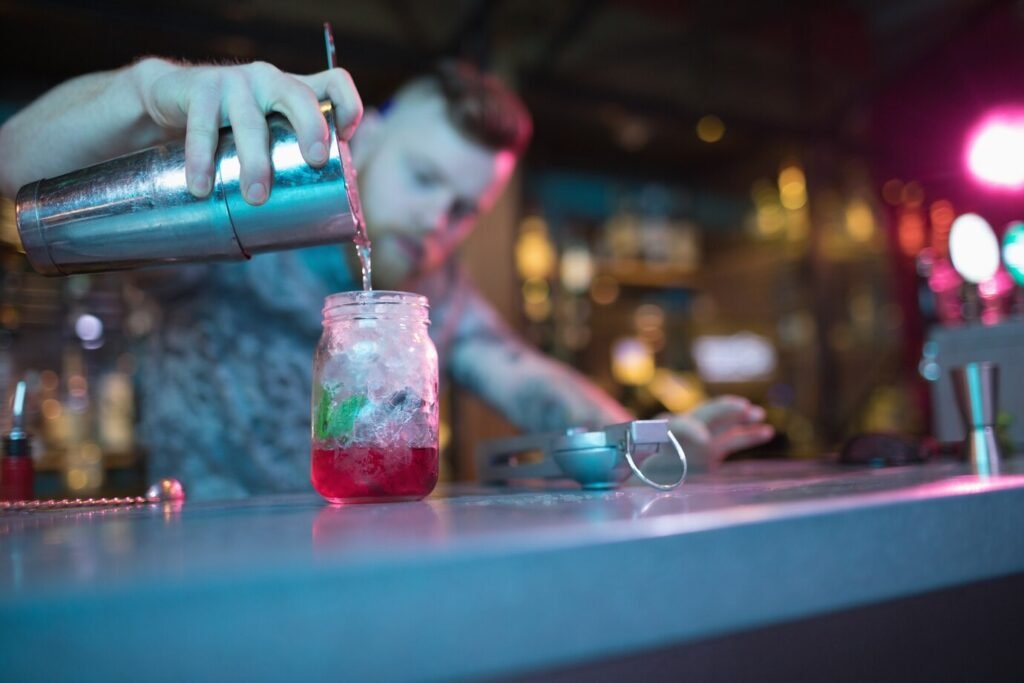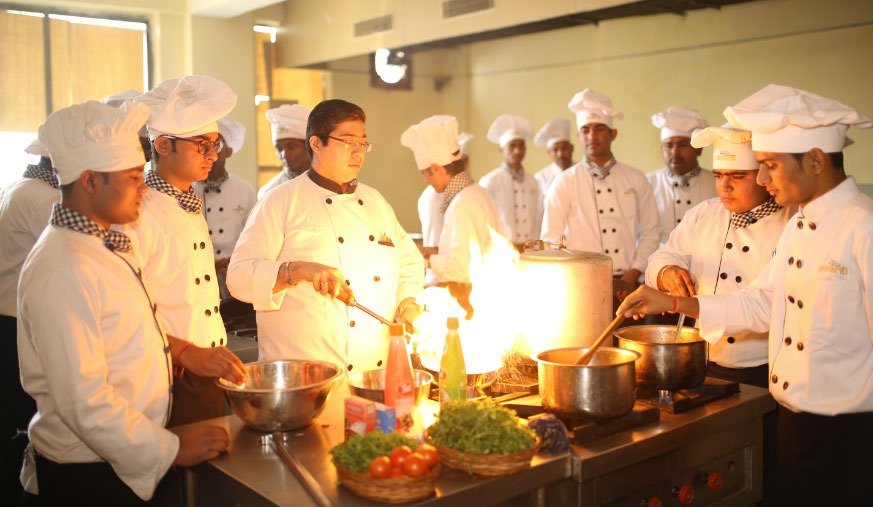Bartending has evolved from a simple trade to a sophisticated and respected profession within the modern hospitality industry. With advancements in hotel management, the role of bartenders has transformed significantly, blending art, science, and business skills. Today, a professional bartender is not just a drink maker but also a mixologist, entertainer, and customer service expert.
The Traditional Role of Bartenders
Historically, bartending was seen as a trade learned through experience rather than formal education. Bartenders were primarily responsible for serving drinks, maintaining bar inventory, and ensuring customer satisfaction. Many learned through apprenticeships, observing seasoned bartenders, and acquiring hands-on experience. However, as the hospitality industry evolved, so did the expectations from bartenders. Today, the role demands extensive knowledge of cocktails, spirits, and customer interaction, along with proficiency in inventory management and operational efficiency.
The Rise of Professional Bartending Courses
With the growing demand for skilled professionals in the hospitality sector, many educational institutions now offer specialized bartending courses. These programs provide in-depth training on cocktail preparation, mixology techniques, beverage management, and customer interaction. A hotel management institute offering a structured bartending course ensures that students gain both theoretical knowledge and hands-on experience, making them industry-ready.
Components of a Bartending Course
A well-rounded bartending course typically covers:
- Mixology: Understanding the art and science of cocktail-making.
- Flair Bartending: Learning showmanship skills to entertain guests.
- Alcohol Laws & Responsible Service: Knowing legal regulations related to alcohol service.
- Beverage Management: Managing inventory, ordering supplies, and cost control.
- Customer Service Excellence: Developing interpersonal skills for superior guest interaction.
A hotel management institute that includes bartending as part of its curriculum ensures that aspiring bartenders are well-equipped for the dynamic hospitality industry.
Modern Trends in Bartending
1. Mixology and Craft Cocktails
Modern bartenders are expected to be skilled mixologists, creating innovative cocktails that blend flavors, textures, and presentation. The art of mixology has redefined bartending by introducing molecular gastronomy techniques, house-made ingredients, and creative garnishing. Bars now take inspiration from global cuisines, experimenting with unique infusions and locally sourced flavors.
2. Technology in Bartending
The integration of technology in hotel management has also impacted bartending. Digital menu boards, automated cocktail machines, and AI-powered inventory management systems have streamlined bar operations, improving efficiency and customer service. Mobile ordering, self-service beer taps, and contactless payments are also becoming common in bars and lounges, enhancing customer convenience.
3. Sustainability and Eco-Friendly Practices
The hospitality industry is increasingly adopting sustainable practices, and bartending is no exception. From using locally sourced ingredients to reducing plastic waste by eliminating straws, bars are making conscious efforts to be environmentally responsible. Some bars now create zero-waste cocktails, repurposing leftover ingredients such as fruit peels and coffee grounds into syrups and garnishes.
4. Personalized Customer Experience
With the rising importance of customer satisfaction in hotel management, bartenders are now trained to offer personalized services. Understanding customer preferences, recommending drinks based on taste profiles, and engaging in storytelling about cocktails have become integral parts of bartending. High-end bars and lounges focus on providing unique experiences, such as interactive cocktail sessions and custom drink creations tailored to individual guests.
5. Rise of Non-Alcoholic and Low-ABV Cocktails
The demand for non-alcoholic and low-alcohol beverages has surged as more consumers embrace healthier lifestyles. Mocktails, botanical-infused sodas, and craft low-ABV drinks are now staples on bar menus. This trend reflects the hospitality industry’s commitment to inclusivity, catering to guests who prefer sophisticated beverages without alcohol.
6. Celebrity and Influencer Bartenders
Social media has played a significant role in transforming bartending into a glamorous career. Many bartenders have built strong personal brands, gaining recognition as influencers and mixology experts. This has led to collaborations with beverage brands, signature drink creations, and global bartending competitions that highlight innovation and creativity.
The Future of Bartending in the Hospitality Industry
As the hospitality sector continues to grow, the demand for professionally trained bartenders will rise. Enrolling in a bartending course at a reputable hotel management institute can open doors to lucrative career opportunities in luxury hotels, high-end bars, cruise ships, and resorts. The future of bartending lies in continuous learning, creativity, and adapting to the ever-evolving trends of the industry.
Career Opportunities for Bartenders
Trained bartenders have various career options, including:
- Head Bartender: Leading the bar team and managing daily operations.
- Bar Manager: Overseeing the entire beverage service, staffing, and finances.
- Beverage Director: Designing drink menus and overseeing multi-location beverage programs.
- Brand Ambassador: Representing and promoting liquor brands at events.
- Flair Bartender: Entertaining guests with performance-based bartending skills.
- Entrepreneur: Opening and managing personal bars or consulting for restaurants and hotels.
With structured training from a hotel management institute, aspiring bartenders can build successful and rewarding careers in this dynamic industry.
Conclusion
Bartending has come a long way from merely serving drinks to being a dynamic and specialized profession. The impact of hotel management, formal bartending courses, and professional hotel management institutes has transformed this field into an art form that combines skill, innovation, and hospitality. For aspiring bartenders, now is the perfect time to embrace this evolution and build a successful career in the modern hospitality industry.



